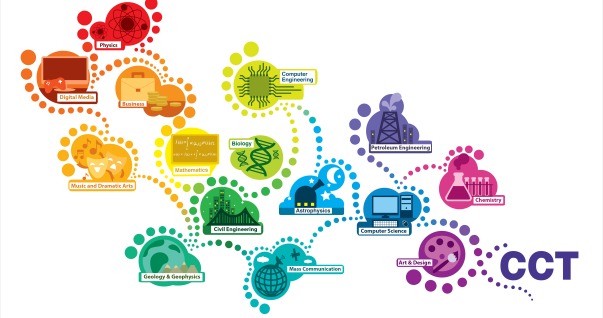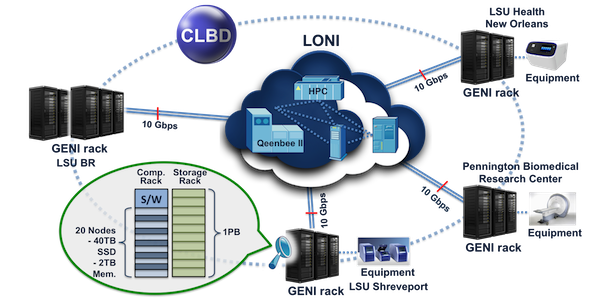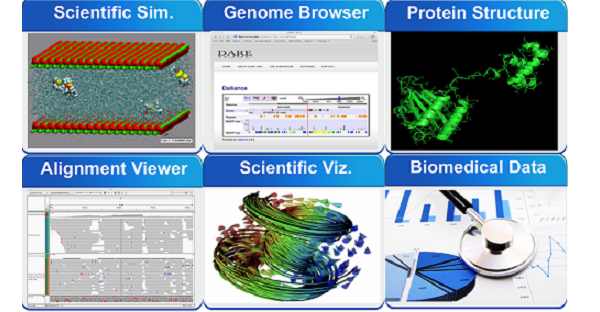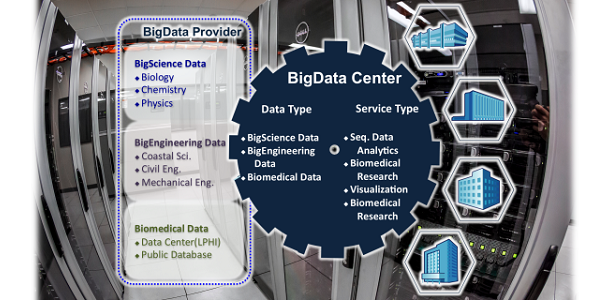



We are a group of researchers from the center for computation and technology and departments of chemistry, biological sciences, biomedical/infecious diseases, and computer science at LSU. We investigate, develop, apply, and distribute BigData discovery and outcomes in a collaborative manner for traditional domain scientific research as well as interdisciplinary topics.
What we doIn addition to traditionally challenging problems associated with data integration, mining, processing, and visualization, novel scientific discovery that is facilated by BigData cyberinfrastructure is pursued to build a holistic approach.
What we envisionCyberinfrastructure integrating software frameworks (for High-performance Computing resources and clouds), networks, and scientific activities is a viable approach to deal with ongoing BigData research.
As technologies evolve, scientific research projects can produce, capture, store unprecedented amount of data. The ”Big Data” can remake science and engineering research. It also can change the paradigm of scientific research from a hypothesis-driven research to a data-driven research. Not only a few big sciences (such as, Genomics at Biology, Earth modeling at Geoscience, Large Hadron Collider at Physics, etc.) but also social sciences (research on census data and relational information among Laws, etc.) and industries (Facebook, Twitter, etc.) produce big data and analyze them to extract statistical and behavioral information.
"BigData is a very hot term" Park said. "Genome sequencing is one of the major drivers for Big Data research. It is unusual to produce many terrabytes of data in sequencing the human genome, or trillions of digital information bytes. But processing terrabytes of data has been a headache for researchers using their own equpiment."
"Louisiana has a huge amount of compuatational Power. We have Super Computers at LSU. We recently Purchased Supermike-II, Which became a super-class computer. With this project, we can help researchers bring their data to bigger machines, not just one or two computers." Park added.